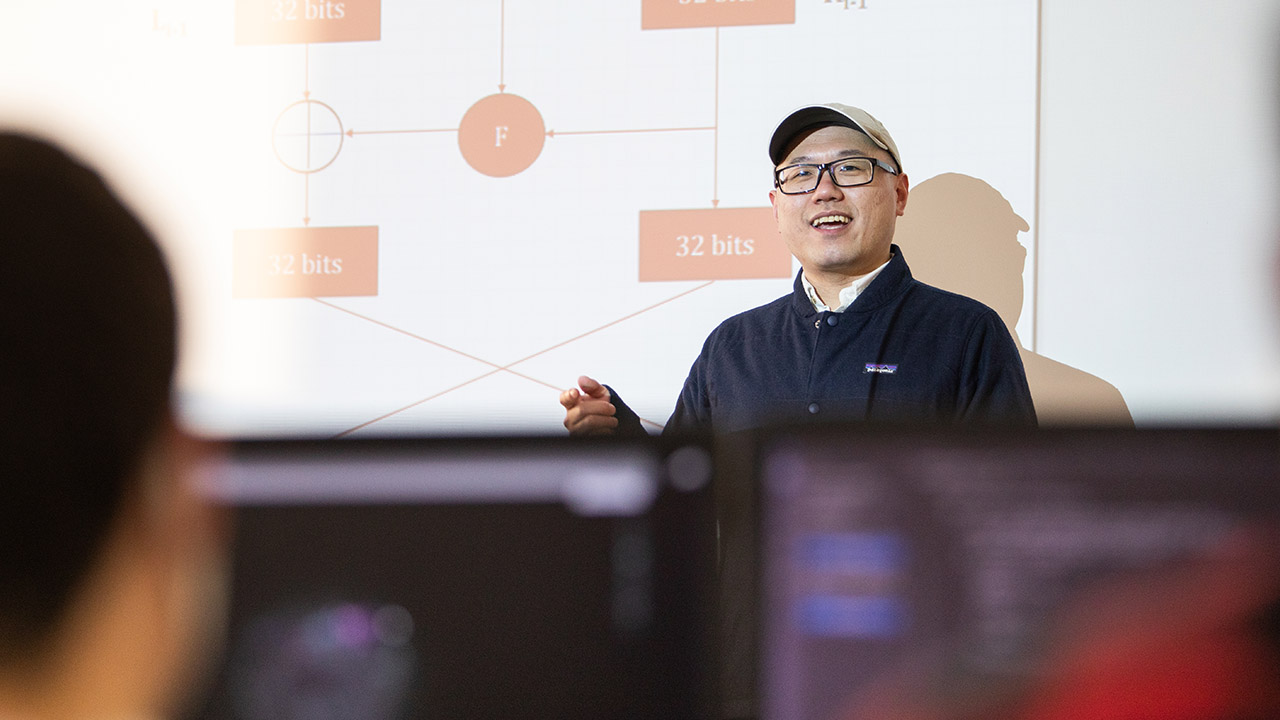
Dr. Songqing (Joshua) Yue is an assistant professor in the Department of Computer Science and Software Engineering at UW-Platteville. This fall, Yue will be teaching courses in the new undergraduate cybersecurity program.
“I would encourage prospective students to step up and choose a career in cybersecurity to help make the world a better place by combating the ever-growing cybercrime,” he said.
Yue earned his Ph.D. and master’s degrees in computer science from the University of Alabama. His research interests include cybersecurity in IoT, security risk management, and software engineering with a special focus on program transformation systems and domain-specific language.
Why is it important for UW-Platteville to offer the new undergraduate degree in cybersecurity?
The cybersecurity program at UW-Platteville is offered as a response to the recognized shortage of cybersecurity talents throughout the state and region.
The U.S. Bureau of Labor Statistics notes that information security is projected to grow 32% from 2018 to 2028, which is much faster than the average growth of all occupations in the U.S.
Cybersecurity Ventures predicts there will be 3.5 million unfilled cybersecurity jobs by 2021 worldwide.
The program features a state-of-the-art cybersecurity lab and is designed to provide students with hands-on learning opportunities. What unique opportunities can students expect to have available to them as they enroll in this major?
In a discipline as applied as cybersecurity, providing students with hands-on learning opportunities through lab scenarios is critical to student success. A series of labs are carefully designed to offer our students an active and project-based learning experience by simulating real life cybersecurity environments. Through these labs, students will learn how to apply offensive and defensive techniques and skills to defend cyberattacks, perform ethical hacking, manage security risks and conduct forensics investigations.
The cybersecurity curriculum goes live this fall. As a professor, what about the addition of this new program are you most looking forward to?
The new curriculum features a year-long capstone project where students will be working in a group to solve a real-world cybersecurity problem.
The new curriculum also offers two application domain options for cybersecurity students. The first option allows students to choose any discipline as the application domain, while the second option designates criminal justice as the domain, with required courses offered by the Department of Criminal Justice.
The program follows ABET guidelines and is aligned with industry certificates. How will students benefit from a degree in cybersecurity?
The curriculum was developed in alignment with defined requirements of Accreditation Board for Engineering and Technology (ABET). Our goal is to get ABET certification in four or five years, which requires us to provide a high-quality education in cybersecurity to students through continuous improvement.
A degree in cybersecurity will better prepare our students for getting top cybersecurity certifications, such as CompTIA Security+, Certified Ethical Hacker (CEH), and Certified Information System Security Professional (CISSP).